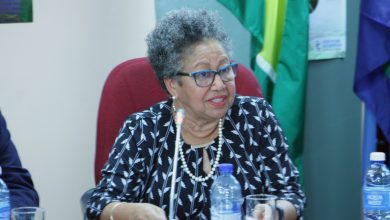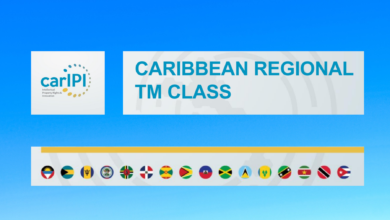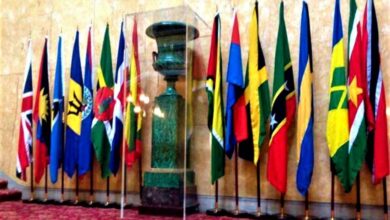BRIDGETOWN, Barbados, CMC – The Georgetown Agreement, which was signed in the capital of Guyana in 1975, bringing into being the African Caribbean and Pacific (ACP) Group, is undergoing a wide-ranging revision that could result in the 79-member grouping being referred to as the Organisation of African, Caribbean and Pacific States (OACP).
Last week, diplomats from the ACP region met for a special session of the Committee of Ambassadors of the ACP Group of States to examine proposals from the region to “inform a fundamental Revision of the Georgetown Agreement.”
The accord, signed at the time the First Lome Convention came into force, laid down the rules for cooperation between the then 46 countries of ACP and the European Union.
ACP officials acknowledge that over the years the those developing countries have joined forces based on common interests and values strengthening their bargaining power to pursue development of their societies in which trade would be a central driving force.
They noted that initially intended to deal with Europe, from the outset, the ACP was meant to be with but beyond Europe.
Now, 43 years later, the Constitutive Act of the ACP Group of States, as the largest grouping of developing countries with a permanent secretariat and Observer Status at the United Nations, stands in critical need to assess its foundation principles and “go global” as a catalyst and advocate of multilateralism in a post-modern world.
“The ACP Group is strengthening and deepening its foundations to be more grounded in South-South and triangular cooperation to assist member states, and the global South as a whole, in the implementation of the UN’s Agenda 2030 and the Sustainable Development Goals (SDGs),” ACP Secretary General Dr. P.I. Gomes told the Caribbean Media Corporation (CMC).
He said that the ACP is currently engaged with several UN agencies including Food and Agriculture Organization (FAO), the United Nations Development Programme (UNDP), the United Nations Conference on Trade and Development (UNCTAD) and the UN Office for South-South Cooperation.
He said more significantly, by enhancing Intra-ACP cooperation, ACP is working with Continental and Regional Integration Organisations (RIOs) and Regional Economic Communities (RECs) including the African Union, Pacific Forum and CARIFORUM in areas on climate change, disaster risk management, gender equality, health systems strengthening and ocean governance and maritime security.
Following an earlier Revision in 2003, the revised Georgetown Agreement will recast the foundation principles of unity and solidarity, on which the ACP Group is built, and examine the scope for various categories of membership with regions and countries of the Global South.
In this Revision, an examination of the Preamble should reflect what the 7th Summit of ACP Heads of State and Government called for in 2012 that “contacts and relations with other States and groups of States” must feature prominently in the Agreement.
Gomes said that the revision is meant to ensure that while the foundation is strong and has proven to be dynamic and open to innovative changes, over the last 43 years of the ACP’s existence, “we have to be creative and sharply focused in addressing a 21st century that is showing new and vastly turbulent, geopolitical realignments at national, regional and continental levels.”
He said some of this appears in Syria and the Middle East, the push for a Continental Free Trade Area in Africa, the drift to the right in favour of neo-liberal free trade and structured inequality across Latin America and the growing pace of an all-out trade war between the USA and China.
Gomes said these events have consequences for sustainable development and structural transformation of ACP economies which is in the very DNA of the ACP Group “to end poverty in all its forms everywhere” as in keeping with the Sustainable Development Goal 1.
ACP officials say this also underlines why the restatement of the vision of the ACP Group was expressed by Heads of State and Government at their eighth Summit in 2016 in Port Moresby, Papua New Guinea.
“We commit ourselves to strengthening coordination and dialogue among our States, in all international fora, so that our numbers will work in favour of creating reforms to the multilateral architecture that will serve our interests and enhance the role of our Group, in areas of global governance in order to contribute to the development of our States and meet the expectations of our peoples,” they said.
To fulfill those aspirations, the revision of the Georgetown Agreement is now more than ever an imperative not a mere choice.
Gomes said that the meeting held in Brussels last week was therefore an opportunity for the ACP Committee of Ambassadors and the ACP Secretariat to thoroughly discuss and exchange views on the various proposals circulated for amendments and additions to the 30-plus Articles in the Agreement.
Among issues receiving attention was a change to the title and designation of the organisation that could be replaced by the OACP.
There was also consideration to distinguishing categories of membership on the basis of Full, Observer or Associate status with attention to other than “regional bodies” eligible for consideration, if they share values and common interests of the ACP Group and accept the responsibilities of membership.
Gomes said that the deliberations will continue and hopefully aim to offer recommendations for a revision of the Georgetown Agreement at the 107th Session of the ACP Council of Ministers to be held in Lome, Togo on 28 -29 May this year.
That occasion would also arrive at a comprehensive unified mandate for African, Caribbean and Pacific countries to negotiate with the European Union a successor to the current Cotonou Partnership Agreement in 2020, he added.







